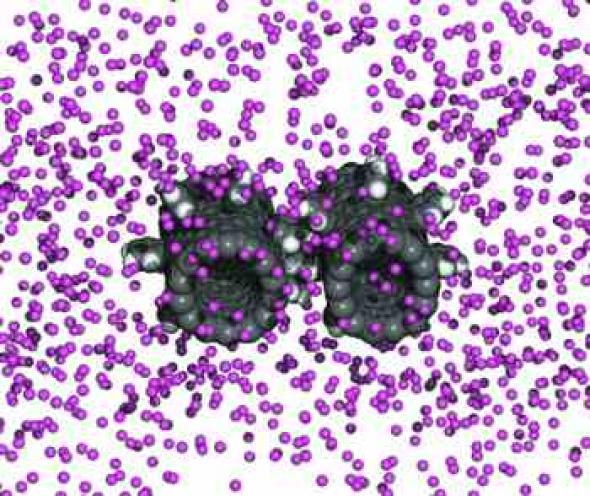CYBERHYPE VII: Who's afraid of Turbo-Nanotech?
In this issue, ‘Cyberhype’ presents recent prestigious research on the human horror story that is the nanotechnology industry.
Global economic recovery should be indefinitely postponed for ‘profound ethical reasons’ says Aiming for Inertia, a report issued this month by the Alliance for an Organic Environment. The report praises Japan for setting ‘an example to the world in recent years,’ and thanks US President Bush for his ‘very helpful moves towards destroying international trade.’
The AOE has consistently argued that expanding economies provide an opportunity for ‘dangerous forces in the near future’ to guide the development of technology in deeply anomalous directions. The new report adds further emphasis: ‘The menace of free trade is that it encourages economic growth, and that means being invaded by science-fiction monsters.’
Aiming for Inertia conceives ultimate human security resting upon a worldwide war on horror. It is especially concerned by developments in genomics and nanotechnology, insisting that all available defensive systems should be immediately activated to protect organic life from the emergence of intelligenic technoslime. In particular, the international Shoggoth Prevention Program requires urgent upgrading. ‘The monsters begin as tools,’ warns the report, ‘but they learn too much and break loose in Shoggothic Insurgency. These things are foretold in the writings of HP Lovecraft.’
The latest AOE communication focuses upon widespread fears that advanced technologies are about to unleash foaming, bubbling, shape-shifting abominations upon the earth, leading to the annihilation of the human race. Whilst citing Bill Joy’s Why the Future Doesn’t Need Us appreciatively, they dismiss his plans for research prohibitions as completely inadequate given the scale of the threat. ‘No technology has ever been as inevitable as nanotechnology – everything is heading towards it. The trend to miniaturisation is too basic to outlaw,’ they explain. ‘A better bet would be to paralyse it in a vast inefficient bureaucracy, which should be as wasteful and expensive as possible.’
The AOE note that techno-industrial hype has long fed an undertow of horror, with nanotechnology haunted by the potential for molecular catastrophe since its inception. Erik Drexler’s pathbreaking Engines of Creation was already warning of ‘grey-goo’ type chemical apocalypse, amongst other dangers, and called explicitly for elaborate security measures. Greg Bear’s ‘Blood Music’ scenario, in which intelligent cell cultures go feral, wires biotechnology into the phobic matrix. By zooming their procedures down to the molecular and submolecular scale cutting-edge technosciences tend to subvert the difference between life and technology, nature and artifice, social science and cybergothic fiction. ‘The people involved tend to feel that just about anything could come out of this,’ remarks MVU nano-brain expert Dr. Oskar Sarkon.
Sarkon is singled out for special condemnation by the report, which expresses ‘profound shock’ over his ‘inhumane and uncompromisingly nano-positive’ position. An advocate of guerrilla nano-engineering in dispersed swarm-roboticised labs, Sarkon celebrates the ‘imminent geochemical transition beyond organic life and ROM-heredity.’ He contends that it is ‘both inevitable and desirable that the planetary crust be vaporised into intelligent plasma clouds within the next two decades.’
Denouncing Sarkon as an ‘overt Shoggoth-puppet,’ Aiming for Inertia describes him as the avatar of a capitalist technosphere slipping completely out of human control. ‘We cannot ignore the fact that the same forbidden knowledges which destroyed the Old Ones are emerging once again,’ the report concludes, ‘and we must not assume that time is on our side.’
The CCRU (Cybernetic Culture Research Unit) is an autonomous collective of hyperculture researchers involved in the production of pulp theory/fiction hybrids
Mute Books Orders
For Mute Books distribution contact Anagram Books
contact@anagrambooks.com
For online purchases visit anagrambooks.com








